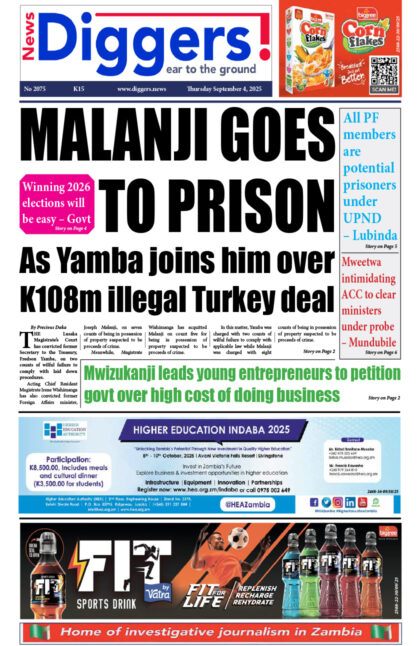The Zambia Media Freedom Committee of the World Association of Newspapers and Publishers (WAN-IFRA) has reminded journalists to always remember the importance of ethics in their practice.
This was at a one-day workshop on media ethics organized by Zambia Media Freedom Committee of the WAN-IFRA on Thursday last week, where media trainer and consultant Herbert Macha encouraged journalists to observe media ethics at all times.
The workshop attracted editors and senior reporters from ZNBC, News Diggers, Zambia Daily Mail, Times of Zambia, QFM, QTV, Muvi TV, The Globe newspaper, New Vision, Live Radio, Kwithu FM and Hot FM who all agreed to defend the integrity of the journalism profession.
Representatives from Misa Zambia and the Media Liaison Committee were also part of the workshop where the editors and reporters widely discussed issues of media ethics and how important they were in the practice of journalism.
Joan Chirwa, chairperson of the Zambia Media Freedom Committee of the WAN-IFRA and Free Press Initiative (FPI) Zambia founder, said journalists of today have a lot of work to do to ensure confidence in the media was restored, adding that this could only be done if journalists conducted themselves in an ethical manner in their duties.
After the discussions on media ethics, the journalists and editors, through a communiqué, promised to restore sanity in the profession by observing the rules that guide the journalism profession.
“We will ensure balanced coverage in our stories and accord all sides a chance to tell their side of the story. We will END the inclination to political parties in our coverage of stories to ensure credibility of our media institutions. We will, through establishments like the Media Freedom Committee of the WAN-IFRA and Free Press Initiative, engage political parties to sensitise cadres to respect and protect journalists because journalism is not a crime. We will ensure that we fact-check pieces of information we come across especially on social media, as one key ethical practice of journalism. We will treat social media postings about what we consider news as tips and not a complete story for ‘copying and pasting’,” the participants agreed.
“…We will enforce ethical and professional conduct among practitioners. We will contribute to the change of the public perception of the media practitioners. We will ensure only qualified people practice journalism. We will utilize established institutions to strengthen the interface between industry and journalism training institutions. We will push for the revision of the training curriculum to keep in tune with developing trends and technological advancement. We will support capacity building of media practitioners through mentorship programmes by senior practitioners.”
The participants also agreed that they would further demand decent salaries from employers in order to deal with the issue of demanding transport refunds from sources.
“We will demand decent salaries that must be paid on time. We will demand provision of adequate transport for our smooth operations. We will demand adequate financing of our budgets to avoid falling victim to bribery. Our employers must equip newsrooms for us to operate optimally. All sponsored awards for the media in the country must be managed by bodies like MISA Zambia to ensure credibility,” agreed participants.
The event was held two days before the commemoration of the World News Day which falls on September 28.
























